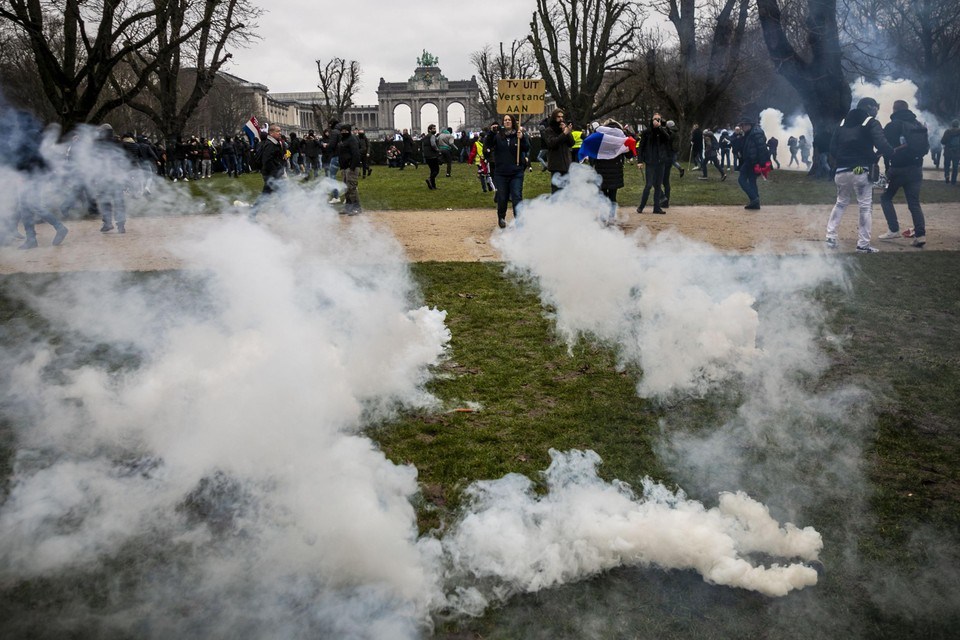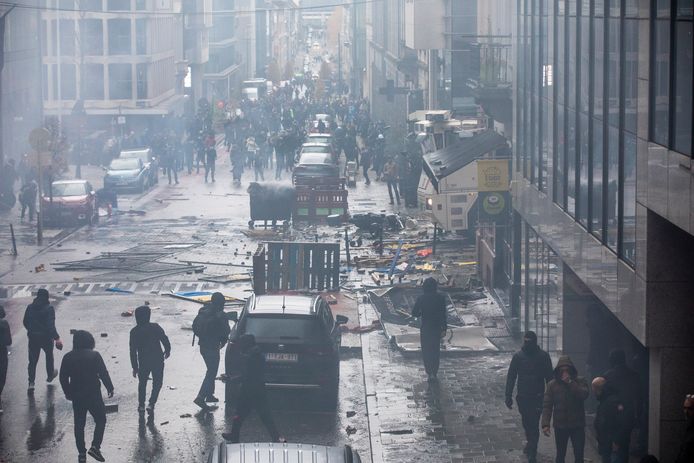In recent months, Brussels has seen many anti-coronavirus protests turn sour. The protests are set to continue with one planned for this Sunday but one mayor says that refusing demonstrations won't stop the violence.
On Sunday 23 January, around 50,000 people took to the streets of Belgium's capital for the European Manifestation for Democracy demonstration against coronavirus measures.
Following the peaceful protest, riots once again broke out, resulting in 230 people being arrested, several police officers and participants being injured and widespread damage to public and private property.
The fact that this has happened several times in just two months has led people to question the approach of the regional governments and mayors, who are in charge of giving the protests the green light. According to Vincent De Wolf, mayor of Etterbeek – which was heavily impacted by the previous riots – refusing protests is not the solution.
Related News
- Police investigation underway into violence against demonstrators
- Legal proceedings already started against several rioters, including minors
"It's not as easy as just refusing the protests. If thousands of people are going to gather and protest anyway, it is better to be organised and allow it to happen in a structured way," he told The Brussels Times.
He explained that once a demonstration is approved, advance meetings take place with organisers and a route is agreed upon. Meetings are also held with the concerned police zones to organise officers. "If we don't do it this way, the impact will be much worse."
Battleplan for future protests
De Wolf acknowledged that certain aspects of dispersing the rioters could have been better managed. He is therefore meeting with competent authorities and partners ahead of this Sunday's protest, despite it taking a different route – from the North station to the Atomium – meaning it won't pass through Etterbeek.
The protest will be approved by Philippe Close, mayor of the City of Brussels, Ilse Van de keere (spokesperson for the Brussels-Capital-Ixelles police zone) told The Brussels Times.
De Wolf and Close will discuss how future protests can be better managed, before talking with the chiefs of all relevant police zones. "We will look at whether we have to take stricter measures to control the relocation of rioters and whether that is possible, for example with more police officers," De Wolf said.

Rioters after the protest on Sunday 23 January in Etterbeek's Parc du Cinquantenaire. Credit: Belga
An agreement should be made regarding how such demonstrations can safely take place in the public space. This will be prepared by the police, to be presented to the various mayors who might be affected by protests.
Harder punishments
De Wolf, who recently celebrated his 30th anniversary as mayor of the district in the east of the city, has seen many protests in his time, both peaceful and violent. "Big protests have always happened in Etterbeek, this is nothing new."
"But in the past, the demonstrators themselves caused the damage. Now there is a new trend where certain people only attend the demonstrations to be violent." In light of the acts committed on Sunday in his commune, De Wolf favours an "accelerated procedure" to punish suspects taking part in the riots.
"Everything that could be destroyed, they destroyed. Setting fire to the metro station, throwing stones and metal fences at police officers, people could have died. These are really serious offences. In my opinion, they should be punished in a serious way, and quickly."

